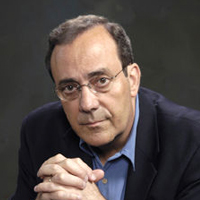Open letter to Miguel Díaz-Canel

By: Carlos Alberto Montaner - 30/04/2023
Share:
I have grown old in opposition to your regime. When you hadn’t been born yet, I was a premature anti-communist, totally intuitive, at 16 years old. I was 15 when the revolution won. Today I am 80. There is no right to that continuity. And I was too against Batista, in a natural way. My opposition to Batista was due to my parents. Manola and Ernesto were anti-Batista. Arriving in exile on the afternoon of September 9, 1961, I was surprised by the change that could be observed in my father. It was a change in favor of Batista, and I attributed it, without any basis, to the new wife my father had taken, Lourdes Anaya- Murillo, daughter of a prominent Batistiano.
Manola continued to be anti-Batista. I was glad that my mother continued to feel democracy in the same way that I had learned, an absolute tolerance with the thoughts of others. I am telling you this story so that you do not believe the misinformation that the regime spreads in its publications about its adversaries. I have nothing to do with the CIA, nor with terrorism, nor with Batista, and there is no truth at all in the hoax that “Montaner helped train Yoani Sánchez in Internet things” during her visit to Europe. Unlike Yoani, director of the magnificent and necessary digital publication 14ymedio, I neither know nor am interested in how the Internet works. My knowledge of these matters is very limited. Those are excuses that they always make to disqualify those who propose initiatives outside of communism, like the one in this letter.
Mr. Díaz-Canel, Marxism, as the substance of the communist system, has always failed, with every type of communism and leader who has tried. Why? It has been carried out among Germans and you have already seen the results. It was tried among the Koreans, and you have already seen the consequences: on the same peninsula there is a part, to the north, that does not even have electricity at night. And in the south, on the other hand, is the developed Korea, that exports vehicles, televisions and computers, and its population has a standard of living similar to that of the first world.
What has not been achieved is to equalize the results. Not everyone is powerful and rich in the most prosperous countries on the planet. There are, of course, many poor people in the richer societies of the world. But what kind of poor is immersed in those pockets of wealth? In the US, a family of four people with an income of less than USD 27,750 is considered to be living in poverty. But they have access to schools, hospitals, food stamps and justice. The welfare state is even more impressive in Europe’s Nordic countries. Denmark will pay my granddaughter Claudia for a second master’s degree. When she finishes studying, she will be able to live a life without debts.
All this is paid with the income generated by the wages of the workers and the profits of the companies. Confiscating large and medium-sized companies was a serious mistake that was committed between June and December 1960 in Cuba. Making them pay taxes would have been enough. And confiscating the small ones was a stupidity that occurred in 1968, when tens of thousands of companies were taken by the State, during the so-called “Revolutionary Offensive,” some of them formed by only one person, such as taxis and certain barbershops and hair salons, and much to its regret, Cuban society became the most communist on the planet.
I haven’t come this far to tell you what you already knew. That Marx was wrong was obvious. That communism was based on the appropriation of the productive apparatus was a disaster. That on our Island it had caused a tremendous catastrophe, with cities and roads destroyed, as if they had suffered a bombardment from a ruthless foreign power. What deserves to be heard is “how to turn setbacks into victories,” as I think you yourselves say.
You see, Mr. Díaz-Canel, a few days ago I turned 80 years old. Recently, a young woman, Rosa María Payá, came to visit me in Madrid. She came to bring me a book. She is the daughter of Oswaldo Payá, who was murdered by the State Security in 2012, along with Harold Cepero. This is demonstrated in the research carried out by David E. Hoffman (Give Me Liberty, Simon & Schuster) who has won a Pulitzer Prize precisely for his historical research.
Rosa María today leads Cuba Decide and does not give up in her efforts to continue the mission that her father, at the head of the Christian Liberation Movement, promoted on the island with the Varela Project. His goal was to hold a plebiscite allowing Cubans to freely decide their fate at the polls. It is a goal that her daughter pursues to end once and for all with the curse of continuity that you sadly preside over. My time has already passed. The time for Castroism has already passed. Indeed, it was born doomed from the start. It is the time for young people like Rosa María Payá inside and outside the island, who eagerly seek what she summarizes as “the defense of freedom, democracy and human rights.” Learn from them. You can still do it. [©FIRMAS PRESS]
*@CarlosAMontaner. CAM’s latest book is Sin ir más lejos (Memories.) Published by Debate, a label of Penguin-Random House, the book is available through Amazon Books.
«The opinions published herein are the sole responsibility of its author».